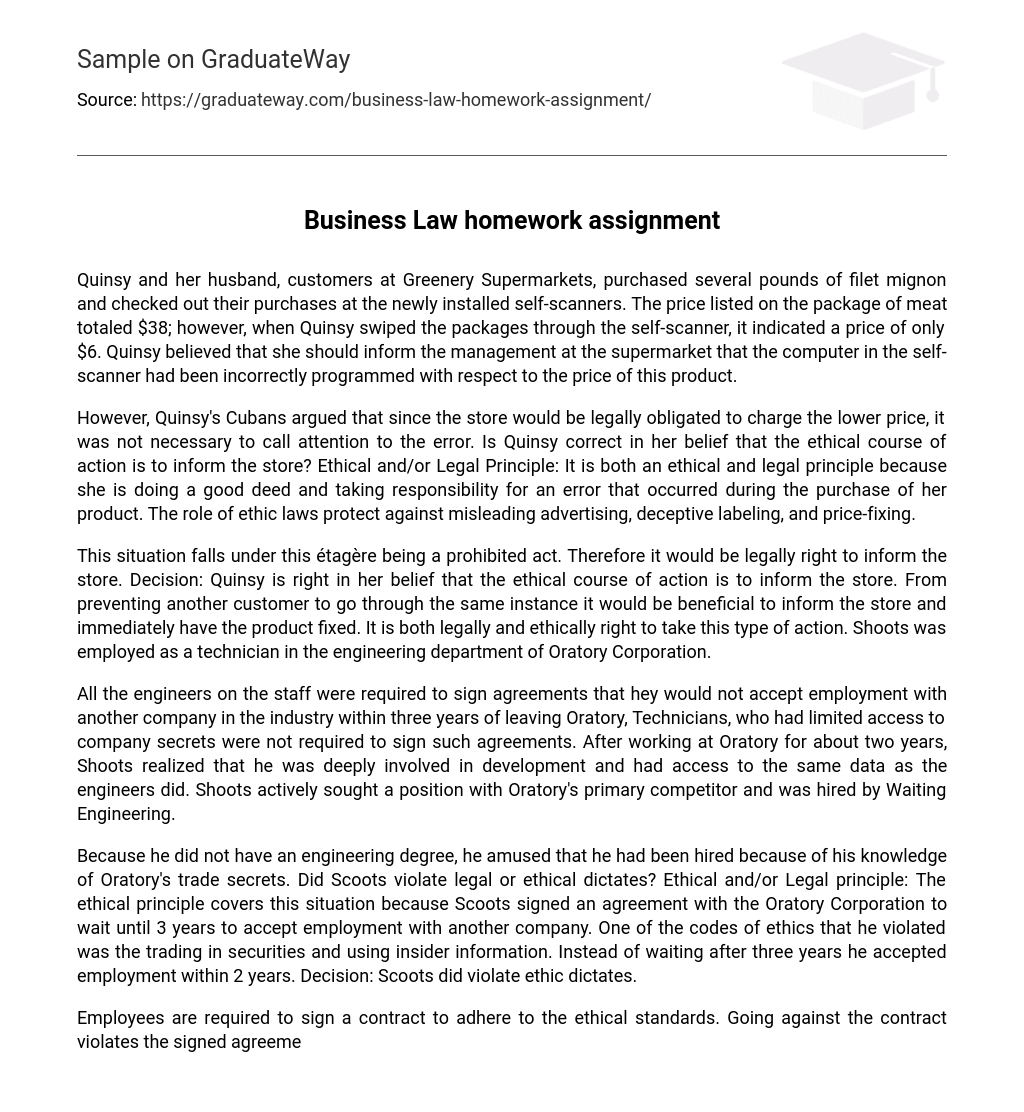Quinsy and her husband, customers at Greenery Supermarkets, purchased several pounds of filet mignon and checked out their purchases at the newly installed self-scanners. The price listed on the package of meat totaled $38; however, when Quinsy swiped the packages through the self-scanner, it indicated a price of only $6. Quinsy believed that she should inform the management at the supermarket that the computer in the self-scanner had been incorrectly programmed with respect to the price of this product.
However, Quinsy’s Cubans argued that since the store would be legally obligated to charge the lower price, it was not necessary to call attention to the error. Is Quinsy correct in her belief that the ethical course of action is to inform the store? Ethical and/or Legal Principle: It is both an ethical and legal principle because she is doing a good deed and taking responsibility for an error that occurred during the purchase of her product. The role of ethic laws protect against misleading advertising, deceptive labeling, and price-fixing.
This situation falls under this étagère being a prohibited act. Therefore it would be legally right to inform the store. Decision: Quinsy is right in her belief that the ethical course of action is to inform the store. From preventing another customer to go through the same instance it would be beneficial to inform the store and immediately have the product fixed. It is both legally and ethically right to take this type of action. Shoots was employed as a technician in the engineering department of Oratory Corporation.
All the engineers on the staff were required to sign agreements that hey would not accept employment with another company in the industry within three years of leaving Oratory, Technicians, who had limited access to company secrets were not required to sign such agreements. After working at Oratory for about two years, Shoots realized that he was deeply involved in development and had access to the same data as the engineers did. Shoots actively sought a position with Oratory’s primary competitor and was hired by Waiting Engineering.
Because he did not have an engineering degree, he amused that he had been hired because of his knowledge of Oratory’s trade secrets. Did Scoots violate legal or ethical dictates? Ethical and/or Legal principle: The ethical principle covers this situation because Scoots signed an agreement with the Oratory Corporation to wait until 3 years to accept employment with another company. One of the codes of ethics that he violated was the trading in securities and using insider information. Instead of waiting after three years he accepted employment within 2 years. Decision: Scoots did violate ethic dictates.
Employees are required to sign a contract to adhere to the ethical standards. Going against the contract violates the signed agreement that you made with the company that you’re currently with. Whatever rules and and requirements that are there, as an employer to that company you’re obligated to follow them. Going to another company against the company that you’re recently with takes the direction of going against the other company. Also, steeling useful information from one and using it for the benefit towards the other company. Scoots made unethical decisions and betrayed his former company by not following the contracts requirements.





